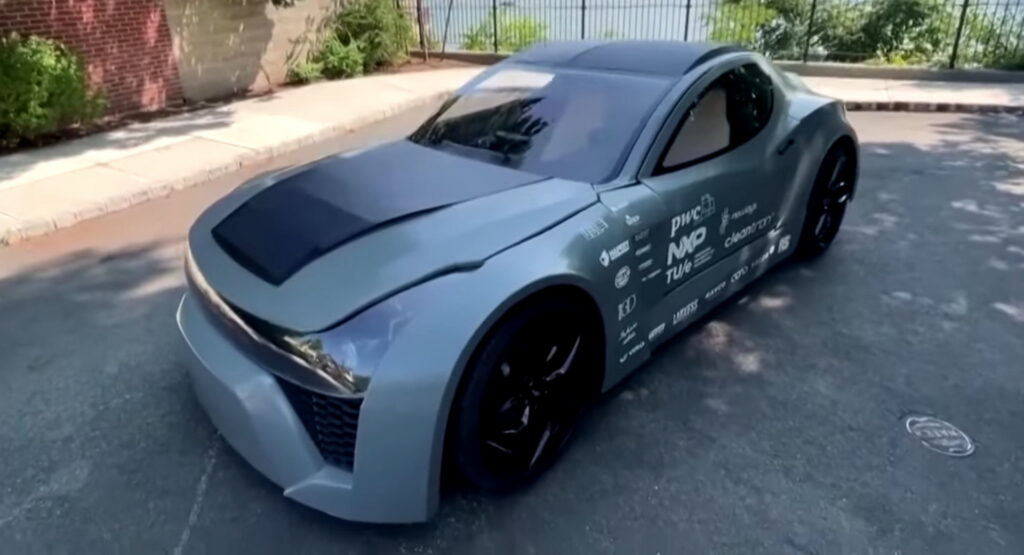Although EVs don’t emit nearly as many pollutants as their internal combustion counterparts, no vehicle is totally emissions free, especially when you factor in its construction. But a team of students from the Eindhoven University of Technology in the Netherlands is trying to get closer.
The team has created the ZEM, or Zero Emissions Vehicle, that is as close to zero emissions as possible. That means that in both the construction of the car and on the road, they’ve used novel technologies to lower its impact on the planet.
“This car was made with the goal to minimize the CO2 emitted during the manufacturing phase, the life phase and the end-of-life phase,” Jens Lahaije, a member of the Eindhoven University of Technology team, told EuroNews.
Read Also: Toyota Teams Up With Northwestern University To Make Fuel Cell Vehicles More Efficient
To that end, it has been built using a high proportion of recycled plastic that has been 3D printed into the correct shape. That includes the monocoque and the body panels and ensures that along with using recycled materials, there is virtually no waste.
The car’s pièce de résistance is a special filter that actually captures CO2 as it drives down the road. According to the team, it can capture up to 2 kg (4.4 lbs) of the greenhouse gas every 20,000 km (12,427 miles).
The team admits that’s not an enormous amount of CO2 – it would take 10 of these cars to capture as much of the gas as one tree – but it argues that if the filter was used on a large scale, the impact would be significant. It’s now seeking a patent for its novel filter through which outside air flows.
Proof-Of-Concept
“It is really still a proof-of-concept, but we already see that we can increase the capacity of the filter in the coming years,” team leader Louise de Laat said in an Eindhoven University of Technology communication. “Capture of CO₂ is a precondition for compensating for emissions during production and recycling.”
The team envisions a future in which filters can easily be emptied at charging stations while the batteries replenish. So far, the filter fills up pretty quickly, needing to be emptied every 320 km (199 miles). But the team is now asking for the help of the automotive industry to carry their project over the finishing line.
“We are calling on the industry to pick up the gauntlet, and we are naturally happy to think along with them,” said Nikki Okkels, the external relations manager at the university. “We have not yet finished developing ourselves and want to take significant steps in the coming years. We cordially invite car manufacturers to come and take a look.”




